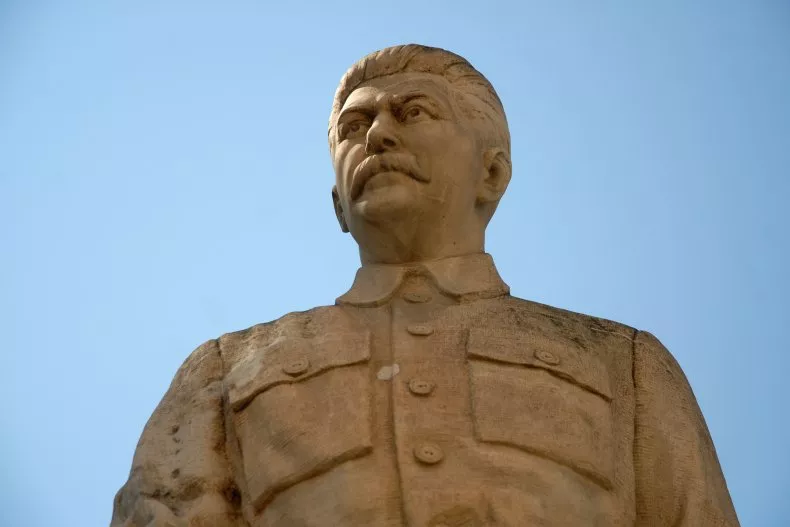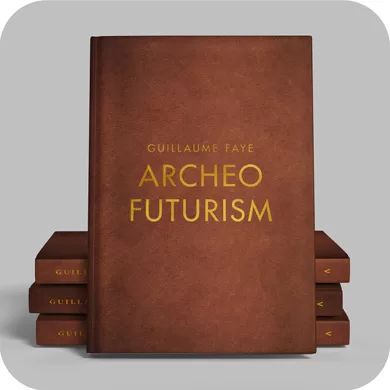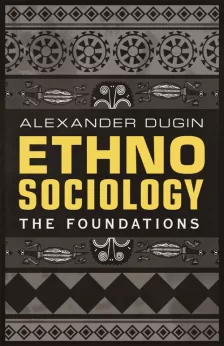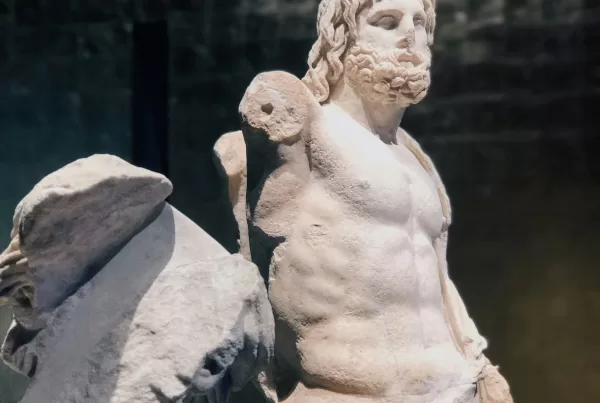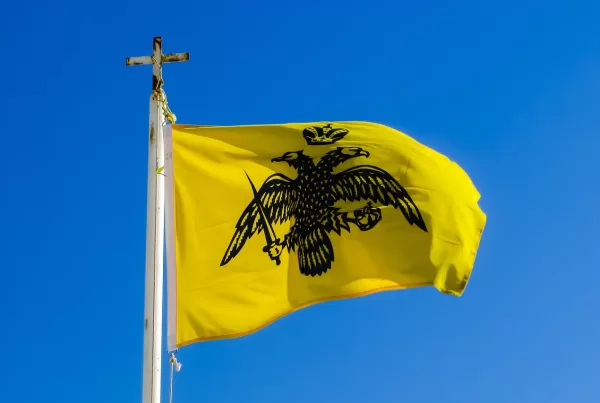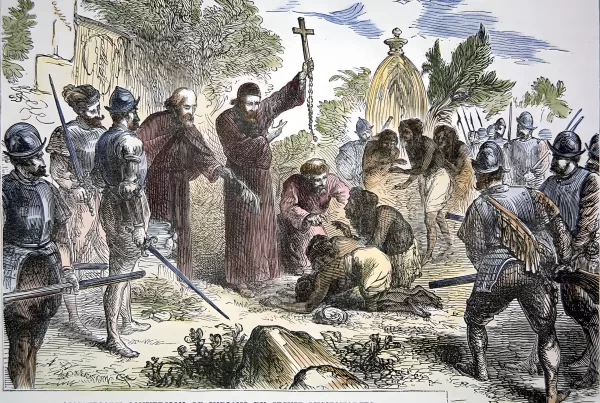The Application of the Hegelian Model to Political Ideologies of European Modernity
It is well known and requires no proof that Marx built his system on Hegel’s philosophy. Marx’s reconstruction of history, though introducing the factor of class into the basis of analysis, in general, completely repeats Hegel’s scenario. The only difference is that in Marx’s materialistic and class theory, which excludes the primacy of the idea-in-itself and starts the construction of its own system from the second member of the dialectical chain — from Nature, from the antithesis, ‘the end of history’ becomes not the world empire (das Reich) but an international classless society — communism.
However, Marx also precedes communism with a phase of capitalism, which must first become a global phenomenon. This was insisted upon by European Marxists, who denied the Bolshevik Revolution in Russia as an example of authentic Marxism, and later by Trotskyists, who broke with Stalin and, like European social democrats, condemned the USSR as a ‘perversion of Marxism’. Thus, a certain analogue of the world empire (das Reich) was envisaged in left Hegelianism as well, as a precursor to the world proletarian revolution, the construction of global capitalism.
This is how Hegel was interpreted by liberal theorists — Kojeve and Fukuyama. Naturally rejecting the Marxist revolution and the class approach, they believed that ‘the end of history’ would occur through the unification of humanity in a single global supra-state system. This would be the complete victory of capitalism and bourgeois internationalism. But unlike Marxists, they denied classes, believing that the middle class would gradually spread to all humanity, and equality would be achieved through evolutionary, not revolutionary, means. The planetary globalisation that Marxists assert before the world revolution, and liberals consider already the ‘end of history’ itself, corresponds, however, precisely to Hegel’s civil society, which he viewed as a dialectical moment preceding the emergence of the state. Thus, both liberals and Marxists qualitatively distort Hegel’s system by refusing to recognise in the Hegelian state the form of Spirit, qualitatively superior to civil society. According to Hegel, moral individuals, rooted in the family and recognising the negative moment of alienation in society, consisting of many families, should voluntarily (or more precisely under the influence of the spirit acting within them) overcome this phase and through the negation of negation, that is, through the negation (sublation) of civil society, transition to a constitutional monarchy. However, liberals remain at the level of the second dialectical moment — at civil society, overcoming the family (hence the gradual abolition of the family in Marxism and liberalism) but not overcoming the overcoming, that is, capitalism and bourgeois democracy. Thus, they remain in the realm preceding Hegel’s understanding of the state as such, that is, as a moment of the ascent of Spirit. Therefore, even orienting towards Hegel’s principle of ‘the end of history’, they skip the most essential moment of the entire Hegelian system — the state. Hegel insists that the monarchy does not precede civil society but follows it — at least the monarchy he speaks of in his system. Civil society historically cancels the old type of monarchy, which Hegel does not mention at all in the unfolding of Spirit in the realm of morality. But it is precisely before the philosophical monarchy, the state of Spirit, that it precedes.
From this, we can conclude that both liberal and Marxist interpretations of Hegel significantly deviate from his system in the realm of state and law, which means their interpretation of ‘the end of history’ seriously distorts Hegelian thought and does not include Hegelian ontology of the state in principle. And for Hegel himself, it is precisely from this ontology of the state (der Staat) as a moment of ascending Spirit that the meaning of ‘the end of history’ emerges. If we understand ‘the end of history’ as the internationalisation of civil society, including or excluding the class criterion of Marxism, we completely change the entire structure of Hegelian philosophy of history, never reaching that instance where the synthesis of the moral sphere occurs and a philosophical monarchy (not yet a world empire), the state of Spirit, is created.
Right Hegelians, such as Giovanni Gentile, were much closer to Hegel. They place the concept of the state precisely in the Hegelian context and see in it the sublation of civil society. Such a state was supposed to be post-bourgeois, post-capitalist.
Strangely enough, the Russian Bolsheviks also turned out to be close to Hegel, initially announcing the possibility of a proletarian revolution in one country, and then, under Stalin, about the construction of socialism also in one country. Thus, in the left version, there appeared the theory and practice of creating a post-bourgeois state, in which civil society was overcome. If we consider the system that emerged under Stalin as a spontaneous ‘monarchy’, it would quite correspond to Hegelian logic.
What is Hegel’s State?
In these relations lies a crucial philosophical moment. On the one hand, the presence of another state weakens the degree of philosophical generalisation that Spirit achieves in each separate state. The presence of other states emphasises the insufficiency and non-finality of such expression. Therefore, the system of international relations represents a negation. Spirit in international politics recognises its boundaries, that is, its form and its relativity. This is the philosophical justification for war — it is the work of the negative moment.
Yet, at the same time, international politics acquires the highest philosophical meaning, for it is here that the penultimate act unfolds, followed by the achievement of ‘the end of history’, that is, the final formation of Spirit becoming absolute. Hence, there is nothing deeper and more meaningful than the processes occurring in international relations at this dialectical stage. International relations represent precisely the moment of Spirit, so decisive that in it the fate of how and on what basis the last empire of Spirit (Reich) will be built is played out.
Here we approach the apotheosis of the most moral realm, to its peak. According to Hegel, all history is a movement towards this goal — to the world empire (das Reich) of meaning, and international relations closely adjoin this. This is the moment on which the future casts its densest shadow (adumbratio by Husserl).
Examples of Quasi-Hegelian States in the Twentieth Century
The USSR, in its Stalinist version, represented a ‘post-bourgeois empire’. The Axis countries, also post-democratic, were theoretically closest to the Hegelian philosophical monarchy, and even the liberal regimes of the West — primarily England and the USA — did not weaken their statehood but, on the contrary, under the pressure of pragmatic circumstances, created strong and centralised political systems. If this observation is valid, we can offer a Hegelian reading of international relations in the twentieth century. The main events in this domain would then acquire a vivid and profound philosophical dimension. They can be considered three political ideologies that became the axes of the corresponding blocks — liberal, Soviet, and nationalist. On the eve of the final resolution of Spirit in the world empire (das Reich), the three ideologies, based on their respective states, clashed with each other in the battle for ‘the end of history’.
The Twentieth Century and Simulacra of the State
But here we faced the most serious contradiction. At first glance, the liberal reading of Hegel, which was detailed in the works of Kojeve, seemed to have triumphed. Here, American neoconservatives, who were from a Trotskyist background and thus deeply imbued with Hegelianism, played a significant role. In opposition to Stalin’s line of the ‘Red Empire’, which they saw as too closely intertwined with the Russian spirit and identity, betraying internationalism in their eyes, American Trotskyists sided with liberal globalists to help them complete the construction of a bourgeois capitalist society on a planetary scale, achieve the complete abolition of nations, races, religions, and any local identities, and thus create the prerequisites for realising a global proletarian revolution strictly according to Marx’s precepts, without fearing to fall into the trap of Stalin’s national Bolshevism, which they saw merely as a ‘variant of National Socialism’. The world revolution was postponed until the complete victory of global capitalism.
However, an essential consideration arises: being at the level of civil society and not recognising (unlike right Hegelians, more faithful to Hegel himself and his system) the philosophical significance of the state as a moment of the expression of Spirit, liberal Hegelians could not fully correspond to the final empire and claim that world liberalism in the form of globalism represents the crown of the unfolding of Spirit for itself, especially since the spiritual prerequisites of Hegel’s system were formally denied by Marxism and did not play a significant role for liberals. But if there is a black hole at the origins of the system, it was precisely this that the liberal civilisation had to confront at the moment of its greatest triumph. And it is no coincidence that the consistently liberal Hegelian Alexander Kojève paid so much attention to the theme of death, negativity, and nothingness in Hegel. Read the Hegelian system through the eyes of an atheist (to whom Kojève dedicated his fundamental study), and the final empire of Spirit (das Reich) turns into a sporadic triumph of planetary nihilism.
This is exactly what happened at the turn of the epochs, marked by the first vivid strike against the USA from radical Islam at the symbolic moment of the fall of the Twin Towers of the World Trade Center in New York. From the perspective of the philosophy of international relations in the Hegelian model, 11 September 2001 was a key moment in the twentieth century. Instead of a victorious world empire, humanity faced the abyss of nothingness.
Thus, it was necessary to start anew and try to reinterpret everything that had happened and what now had to occur in accordance with Hegel’s foundational logic.
